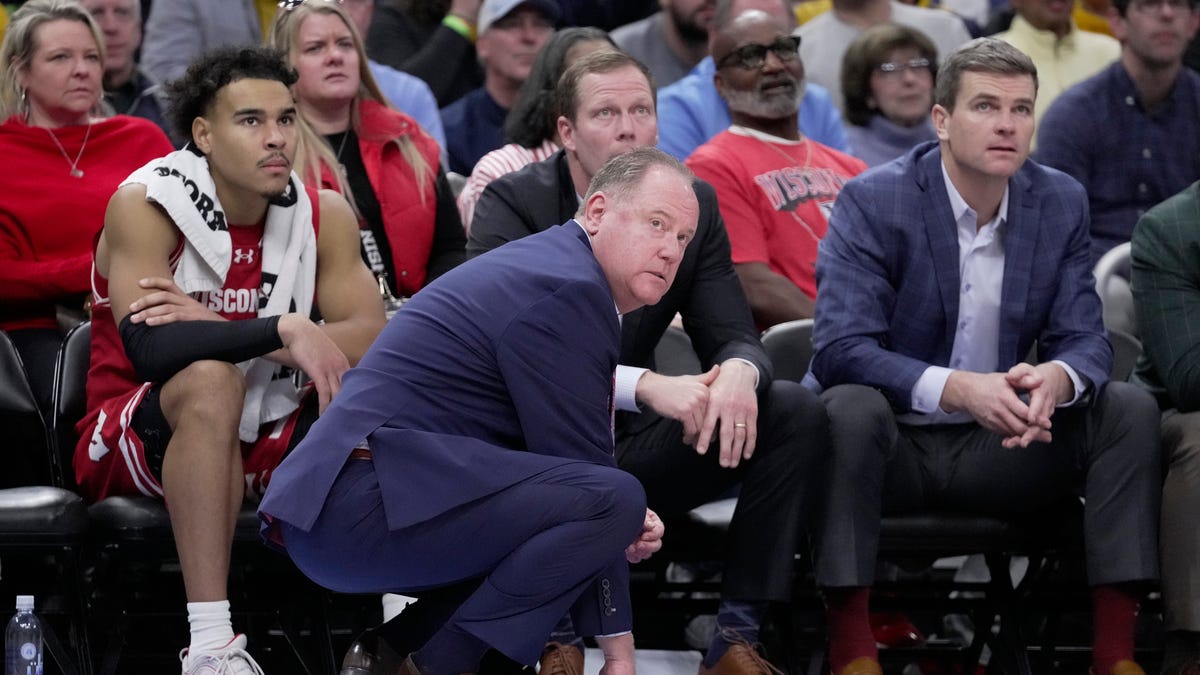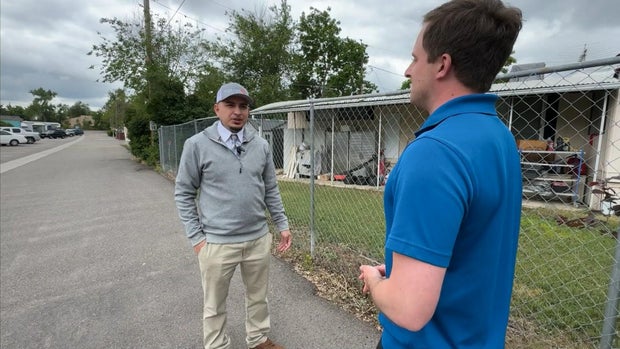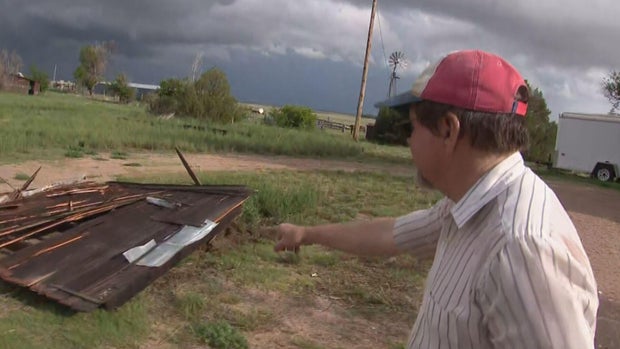Colorado
No. 22 Colorado off to flying start by following lead of unconventional coach Deion Sanders

BOULDER, Colo. (AP) — Deion Sanders wants his players reading all those stories about how good they are. He wants them soaking up every bit of the spotlight, too.
The Colorado coach isn’t one to keep his players grounded. He prefers them flying high, which they are after upsetting heavily favored TCU last weekend and jumping into the AP Top 25 poll at No. 22.
The unconventional Sanders is proving to be a master motivator. He is all about not running from publicity, good or bad, but basking in it and taking “receipts” — his term for those who don’t believe — if necessary.
“They (players) have seen that, ‘Hey, man, all we have to do is win. You see all the attention that we’re getting?’ That has registered now,” Sanders said Tuesday as he prepares for his home debut at Colorado this weekend against Nebraska. “These young men, they know now that if we just ball out, we’re going to get the love that we desire. And that’s all they want. They want attention, focus, a little love and light. Ain’t nothing wrong with that as long as they use it in the right way.”
Sanders has the Buffaloes smack dab in the center of the college football universe this week courtesy a 45-42 win at then-No. 17 TCU. Really, though, they were already there when he made waves by overhauling his roster — nearly 90 new players — and ruffling some feathers around the nation.
His revamped roster has certainly bought in. So, too, have some big names around the sports world, with the likes of Magic Johnson, Patrick Mahomes II and J.J. Watt taking notice on social media.
And so, too, have the oddsmakers, who adjusted the line on Colorado’s win total from 3 1/2 at the beginning of the season, according FanDuel Sportsbook, to 5 1/2 — a half-win shy from bowl eligibility.
The early success in Boulder is hardly a surprise to Sanders, a two-time Super Bowl winner during his Hall of Fame football career who turned things around at Jackson State before arriving in Boulder.
“I’m a winner,” said Sanders, who took over a team that went 1-11 last season. “We’re going to end up winning.”
Colorado’s quick turnaround also is hardly a surprise to new Nebraska coach Matt Rhule, whose team is a 2 1/2-point underdog after losing its opener at Minnesota.
“Everything he’s ever done in football he’s been successful at, so he’s being successful here already,” Rhule said. “They’ve got elite players.”
The Buffaloes march to the upbeat drum of Sanders, who frequently zigs when other coaches might zag. Like this summer, when he admonished his team for not jumping into a skirmish during camp. He wanted to see them support each other.
The Buffaloes will be united this week in not wearing any shade of red. He wants them only seeing red on the football field come Saturday when they face a former conference rival (they were in the same conference for more than 60 years before Nebraska moved to the Big Ten and Colorado to the Pac-12 in 2011).
“We don’t like Nebraska. Simple,” Colorado quarterback Shedeur Sanders said. “But that’s not going to change the preparation or anything like that, because we prepare like nobody likes us, because we know we’re going to get everybody’s best game.”
TCU certainly saw Colorado at its best. No one more than Shedeur Sanders, who threw for a school-record 510 yards on his way to being named the Pac-12 offensive player of the week. After the game, he received a text from none other than Tom Brady, the QB great who’s worked with the younger Sanders in the past.
Brady’s message: Don’t be satisfied.
“It was cool hearing for him, knowing he’s still watching and stuff like that,” Sanders said. “Just working with him, it really helped me just to understand — don’t focus on the good things. … Focus on the bad things, focus on the things that we weren’t able to do at a high level. So improve that.”
Sounds like something his dad might say.
Deion Sanders rattled off a long list of accomplishments against the Horned Frogs, a team that was favored by three touchdowns. Among the accolades he highlighted:
— Cornerback/receiver Travis Hunter rarely leaving the field on his way to becoming the first player in at least 20 years nationally to have a 100-yard receiving and interception in the same game.
— Dylan Edwards catching five passes for 135 yards and three touchdowns.
— His QB son setting nine school records (“Kordell Stewart called me not happy about it,” Sanders joked of the former Colorado standout).
“What that means is we had some gentlemen that can play this game,” Sanders said. “But that doesn’t mean anything going into this week. A whole new focus, a whole new understanding on what’s at stake.”
___
AP College Football Writer Eric Olson contributed.
___
AP college football: https://apnews.com/hub/college-football and https://apnews.com/hub/ap-top-25-college-football-poll

Colorado
Lakewood nonprofit that offers older Colorado residents free home repairs sees more and more requests

A Colorado nonprofit called Bright Leaf Inc. serves elderly populations in economically difficult circumstances by providing landscaping and home repairs free of charge.
At a retirement community in Lakewood this week, Bright Leaf volunteer Jenna Melliadis recently was making some new friends, one door knock at a time. She met Dennis Howard, a 77 year old who lives in the neighborhood. Howard spends most of his time outside these days after his longtime wife passed away in the last year. All kinds of things in the house remind him of her, down to the torn up linoleum on his kitchen floor from where her wheeled chairs would wear down the tile. They used to scrape by on two combined Social Security incomes, but after her passing, Howard has had to shoulder the costs of everything alone.
CBS
“It’s really hard to afford your rent, food and repairs and stuff,” he told CBS Colorado. “You have to put them on the back burner.”
The floor damage has been on the to do list for awhile, he explained, and he was afraid that one day he would slip on it and fall in his home.
“I couldn’t afford to have it done, so thank God these guys came by and are able to help me with it,” said Howard.
The knock on the door from Melliadis changed things.
Bright Leaf is primarily volunteer driven outside of Executive Director Steve Olguin and other senior staff that handle scheduling and coordination.
“Being able to provide services that help people survive safely and comfortably in their home is so important,” Melliadis said.
CBS
For her, it hits home in a particularly pronounced way. Her mother passed away three months ago and couldn’t spend some of her last days and weeks in the comfort of her home. Every walk into a home is a chance to give these seniors an opportunity to be happy, healthy and cared for.
“Because this is such a personal cause and mission to my heart it is unbelievably gratifying,” she said. “The impacts that we’re able to have on each individual, knowing that they’re happy, that they’re comfortable, that they’re safe is just such a huge blessing.”
Bright Leaf Inc. started out as a Facebook group where people would share resources and a way to help elderly individuals like grandparents or other family members. Over the next few years, more calls for service would come and Olguin decided to put his experience as a roofer and contractor to work. The group did receive grant funding but recent administrative changes within state and federal governments have forced them to look into other funding avenues. Nowadays, Olguin says, they operate primarily on community donations, volunteer time and good Samaritans that are willing to lend a hand, a lawn mower, or a power drill to help those in need.
Since 2022, Olguin said, calls have been more frequent and tips regularly come in regarding neighborhoods and people to help. But 2025 has been a particularly intense period of work.
“The beginning of 2025 is a time when we have seen the most requests come in,” he said.
Based on those calls and tips, the volunteers will fan out to areas like the Lakewood community they were in this week. Typically, the trips are two days in length. The first is to knock on doors, meet residents and see what they need help with. Olguin and his team divvy up responsibilities, what contractors need to be called and who can do what work and then the next morning, crews are out to fix what needs to be fixed. It can be anything from lawn mowing and weed whacking to bigger projects like replacing carpets or making showers ADA compliant for residents that are now using walking aids.
CBS
“To be able to help a senior do some repairs on their home that they wouldn’t otherwise be able to afford or they don’t have family support, it shows them that there are people out there that do care,” Olguin said.
“It’s a godsend,” Dennis said, his eyes beginning to well. “I had no idea that this help was out there. People need to know.”
After just one day, Dennis Howard has a friend in Jenna Melliadis. Soon, the rip in his floor will be gone. And Bright Leaf Inc. will be on to the next place, trying to provide some help and comfort to those that need it.
Colorado
Mushroom startups prepare to brave new world of Colorado’s untested psilocybin healing industry

Just a few blocks from Union Station in Denver, a new psilocybin mushroom healing center called The Center Origin occupies a sunny office suite on the third floor of a brick building above a dental surgery clinic. Elizabeth Cooke, the CEO and co-founder, has carefully decorated each room. There are plants, abstract paintings, cushy couches and “zero gravity” recliners. One room sports a small yoga studio and a shelf of literature on the psychedelic experience.
Just one thing is missing: patients.
But that will soon change. With the last piece of the supply chain finally falling into place, healing centers are on track to open their doors to the customers on their waiting lists in a matter of weeks.
In early May, the Colorado Natural Medicine Division issued a psilocybin mushroom testing facility license to Nordic Analytical Laboratories, a Colorado company that previously tested cannabis products in Denver and Pueblo. At the time of writing, five healing centers and three psilocybin mushroom cultivators have also received licenses. All that’s left is for the mushrooms to grow and get tested.
“When you get licensed you have to start fresh,” Adrian Martinez, the owner of a newly licensed psilocybin mushroom grow operation called Druids Choice, told The Colorado Sun last month. “It will take nine to 12 weeks to get a usable product.”
The number of leads we have talked to in Colorado is astronomical. When we really break down the numbers, and tell them what’s transpired in Oregon, 80% are either pausing the project or abandoning it all together.
— Michael Mayes, psilocybin business consultant
Colorado was the second state to legalize supervised psilocybin use, after Oregon did the same in 2020. Healing centers in Oregon opened in the summer of 2023. The industry is still young and some businesses have faced challenges getting started. Michael Mayes, the CEO of a psilocybin and cannabis business consulting firm called Quantum 9, said cultivators and healing centers face dual challenges from an inherently limited customer base and costly overhead expenses.
“The number of leads we have talked to in Colorado is astronomical,” Mayes said .“When we really break down the numbers, and tell them what’s transpired in Oregon, 80% are either pausing the project or abandoning it all together.”
But regulators have mitigated some of the challenges that Oregon’s regulations presented, and Colorado businesses say they have learned from the hurdles faced by their counterparts in Oregon. Both groups remain hopeful that Colorado can create a sustainable industry around psilocybin healing.
A low barrier to entry
In November of 2022, Colorado voters passed Proposition 122, a ballot measure that legalized psilocybin healing centers and directed the state to create a regulatory framework for the new industry. Since then, the newly formed Colorado Natural Medicine Division has been hard at work designing rules that balance various interests, including those of health care systems, traditional indigenous practitioners and local municipalities.
One overarching goal, according to deputy director Kyle Lambert, was to keep the required licensing fees and paperwork to a bare minimum for prospective psilocybin entrepreneurs.
“We really had a goal of trying to create the lowest barrier to entry for potential operators, while still acknowledging that the state licensing authority had to establish a cash fund for the Natural Medicine Division and the state,” Lambert said.
In a move representative of this intention, the division pared down the number of full-time positions in the department from 19, the number proposed in a 2023 senate bill, to just nine. The state rules, finalized in October, set fees for natural medicine licenses ranging from $4,000 for a micro healing center to $8,000 for a product manufacturing facility in 2025.
“We think this is the minimum necessary to carry out the obligations we have to be protective of public safety and implement the program,” Lambert said.
According to Mayes, the division has been somewhat successful in its goal to keep the licensing process from becoming burdensome.
“In the world of RFPs, it’s incredibly light on what you have to submit to get the ball rolling,” he said.

Colorado lawmakers also made a move to avoid a policy that has hamstrung the natural medicine industry in Oregon. Under Oregon’s law, local municipalities are allowed to prohibit cultivators and healing centers from operating within their jurisdictions, which led to more than 100 local bans. Colorado’s law, on the other hand, stipulates that local jurisdictions cannot ban natural medicine businesses, even through overly restrictive zoning ordinances.
“Whatever zoning or time-placement restrictions they do put in place cannot be so restrictive as to effectively prohibit the operation,” Natural Medicine Division director of policy and regulatory affairs Allison Robinette said.
Another challenge for psilocybin businesses, however, was baked into Colorado’s original ballot measure. The measure also legalized production and possession of psilocybin mushrooms for personal use — something that is still prohibited in Oregon.
How Colorado’s broad legalization of psilocybin might affect natural medicine businesses is yet to be seen. But Cooke, the owner of The Center Origin, worries that, without consequences, potential patients might seek out the black market due to the high price of sessions with a licensed facilitator at a healing center. Cooke says patients could spend more than $3,500 on a psilocybin experience when The Center Origin opens its doors.
“There’s going to be a lot of people that say, ‘I can’t afford this,’ because the regulated model is so expensive,” she told The Sun. “I think it’s going to do a lot of harm to the industry for sure.”

To compound this, the price difference between visiting a healing center and growing psilocybin mushrooms at home is likely to be dramatic. Experts say that mushroom cultivation is actually relatively simple and cheap. However, mushrooms are likely to come with a hefty price tag at healing centers, as they have in Oregon where the cost for a single dose is nearly $70. That’s because manufacturing medicine in a state-licensed facility comes with a host of other associated costs.
Cultivating psilocyben
Adrian Martinez went to trade school for collision repair straight out of high school and worked in the industry for 16 years. But, when Proposition 122 passed, he immediately knew he wanted to change careers.
“Something hit me inside,” he said. “I was like, I want to do that. I saw it as an opportunity to provide a service that could help people.”
Martinez had no background in counseling, a prerequisite for the facilitators that work at health centers, but he figured he could be a cultivator. Over the next two years, he taught himself how to grow mushrooms. Not just Psilocybe cubensis, but culinary mushrooms like enokis, oysters and shiitakes, too.
In February, he quit his job and devoted himself to getting his Psilocybe cubensis cultivation business, called Druids Choice, up-and-running. In April, he signed a lease on a warehouse in Aurora, and Druids Choice became the second licensed cultivation facility in the state. So far, he has funded the business entirely with his own savings — nearly $20,000 in total so far.
“I’m very excited and a little scared,” he told The Sun.

Because recreational sales of psilocybin mushrooms remain illegal in Colorado, businesses like Druids Choice can sell only to healing centers. As such, their income will be entirely reliant on the healing centers’ ability to bring in clients.
According to Hayes, the challenges facing cultivators are compounded by the fact that psilocybin experiences only require a small amount of mushrooms, usually taken infrequently. The standard course of treatment at a healing center includes just one dose of mushrooms, which is limited to 5 grams in Colorado.
“The premise of a healing center is to have breakthrough therapy,” Hayes said. “If it works you might not need it again. In terms of profit, everything’s kind of working against these places. ”
In Oregon, healing centers had sold 25,553 psilocybin products to date at the time of reporting, totaling $1.26 million in sales over 17 months, according to the Oregon Health Authority. Mushroom sales in Oregon are dwarfed by cannabis sales, which totaled more than $960 million in 2024 alone.
Despite these modest sales figures, a small cohort of mushroom cultivators seem to have carved out a niche in Oregon. At the time of writing, there are 10 licensed cultivators and one product manufacturer in the state.
Martinez hopes to do the same in Colorado. Druids Choice was the second cultivator to receive a license and, so far, it’s one of only three. The same day that Druids Choice received its license, Martinez inoculated jars of corn with Psilocybe cubensis spores. A month later, Martinez estimated that Druids Choice would produce its first batch of mushrooms within a few weeks. The batch will be among the first in the state.

While mycelium spreads through the jars in his incubation tent, Martinez is making phone calls and scheduling meetings with healing centers. If Druids Choice is going to survive the startup phase, it will have to start bringing in money soon. He says his vision for the company isn’t particularly competitive or profit oriented. He just wants to build a sustainable business that provides a public benefit.
“I just want to provide a service and pay my own mortgage and living expenses,” he said. “And, any employees that I have in the future, I want them to be properly compensated.”
Creating other revenue streams
At the other end of the supply chain, healing centers like The Center Origin are working to hire facilitators and design protocols for guiding patients through psilocybin experiences.
According to clinical director Mikki Vogt, the center’s patients will start with two one-hour prep sessions to develop rapport with their facilitators, set intentions for their healing journeys, complete state-required screenings and learn about psilocybin experiences. Then they will come in a third time for a culminating half-day psilocybin experience.
“The client experiences three-and-a-half to four hours in a very internal state, where they’re engaged with the innate healing intelligence of the mushroom and the facilitator is by their side,” Vogt explained.
As the mushrooms wear off, the facilitator begins a “reintegration session” meant to distill useful insights from their psilocybin experience. Patients can opt to follow the experience with additional sessions or not.
Research on the benefits of psilocybin-assisted therapy is an active and controversial field, but some trials have found it useful for combating addiction, depression and other mental health disorders. Psilocybin has also been used in traditional healing practices by indigenous groups for over 1,000 years, long before the field of clinical pharmacology came to be.
“What I have personally seen in this work is profound healing, transformation, self-actualization and resolution that clients couldn’t find relief from for years and years of different approaches,” Vogt said.
Like cultivators, healing centers also face a unique set of business challenges. Before admitting clients, each center must fulfill a long list of state requirements. Among them, they have to build a secure storage room, install a surveillance system and submit an environmental, social and governance plan. Each proprietor and facilitator also has to apply for and pay for individual licenses on top of the facility license.
According to Cooke, though, the state requirements are actually just a small fraction of startup and overhead costs. What worries her more is liability insurance. Because psilocybin healing is a relatively new and untested medical field, few insurers offer plans, and those that do charge a hefty premium.
When Cooke was finally able to land a policy for The Center Origin, she immediately had to raise the center’s prices to compensate. On top of that, each facilitator must carry professional liability insurance. Vogt says that she was quoted more than $5,000 per year. That’s nearly eight times as much as she already pays as a licensed professional counselor.
“Insurance costs, we’re finding, are going to be astronomical,” Vogt said. “Insurance companies are scared. It’s hard to anticipate what will happen.”
In order to offset costs and diversify income, Cooke says the center is focused on “building out verticals.” In addition to healing sessions, the center plans to offer mushroom cultivation classes, facilitator training and microdosing group sessions. She is also developing product lines of essential oil-infused topicals and medicinal mushroom supplements.
“In Oregon, the healing centers that only provided room rentals and didn’t have anything else available really struggled,” Cooke said. “The ones that offered training and other opportunities made it, and we’re trying to learn from that.”
Offsetting costly services
In the end, costly overhead may be passed along to clients. Cooke says that The Center Origin will charge incoming clients $3,500 start-to-finish, that’s in addition to the cost of mushrooms. Clients that opt to work with a supervised facilitator in training will pay $2,100.
In an effort to make inherently costly psilocybin healing services more accessible, the nonprofits Althea and Tricycle Day have partnered to create the Forward Fund for Psychedelic Healing. Prospective patients can apply to have psilocybin healing services subsidized or paid for by the fund. Vogt says that The Center Origin will guide clients through the application process if they can’t pay for healing services themselves.
“It’s an awesome setup they have,” she said. “Based on their level of need and cost of services, we can help them get whatever coverage they need.”
The forward fund is a “weighted lottery system,” meaning that patients are ranked based on their responses to a questionnaire and entered to receive funding. It’s unclear, as of yet, what portion of applicants might receive funding, but Althea has committed to publishing a quarterly report documenting allocations.
Hayes, the consultant, says that the cost of psilocybin healing services is likely to come down over time if Colorado’s industry evolves similarly to Oregon’s. He estimates that the cost for a session in Colorado could eventually stabilize at around $800.
“In the beginning of the program, that’s where you’re going to see really high per-session prices,” he said. “They’ll eventually come down.”

Cooke says that she hopes to lower prices as soon as possible. Like Martinez, she says that her goal was never to reap large profits. She wants to build a sustainable business that practices responsibly and pays its employees well. In the beginning, she hopes to bring in just eight to 10 clients a month — just enough to keep the center going.
“We wouldn’t make a ton of money, but we would cover costs and feel like we’re bringing a little money in,” she said.
Cooke’s goals may not be profit-minded, but they are ambitious. Through the classes and groups offered at The Center Origin, she envisions fostering a like-minded community of psychedelic enthusiasts.
“This can be part of a greater lifestyle, experience and community” she said. “It can be as big or as little as you want it to be, and we’re here for that.”
In the future, the center’s offerings could even expand beyond psilocybin to other psychedelics. Proposition 122 actually legalized five different psychedelic compounds. Two are psilocybin and psilocin, the psychoactive chemicals in psilocybin mushrooms. The other three are ibogaine, mescaline (the psychoactive component in peyote) and dimethyltryptamine, or DMT, the psychoactive component in ayahuasca).
As of yet, it’s unclear if the state will open up these other psychedelics to a regulated healing industry, as they have with psilocybin mushrooms. But, Robinette says that the Natural Medicine Advisory Board will broach the subject of ibogaine at the beginning of 2026.
“The board will be taking up those natural medicines, starting with ibogaine, for consideration of whether they should be included in the regulatory program and, if they are, what that looks like,” she said. “It would require statutory changes and it might require an expansion of (the Natural Medicine Division’s) authority.”
By then, the state will have nearly a year of regulatory experience with psilocybin to draw from. And, businesses like The Center Origin and Druids Choice, may be poised to provide services never before seen in legal American commerce.
Colorado
Family tours property damage after tornado hits northeastern Colorado
The Farnik family lives in Raymer in Weld County and is touring the damage after severe storms struck Tuesday afternoon. That part of northeastern Colorado was hit by severe storms and at least one tornado.
CBS
“My dad starts screaming, ‘Tornado! tornado!’” said Marrek Farnik.
According to First Alert Meteorologist Joe Ruch, a destructive combination of high humidity and warm temperatures spawned tornadoes that hit near the small town of Raymer on Tuesday.
“I look up to the north and there’s a beautiful translucent rope tornado just dancing through the fields, just drifting through the north,” said Jeff Farnik.
CBS
The tornado skipped over open fields and eventually struck the family’s shed, leaving it in pieces.
“It was pretty close! A few more feet and it would have taken our roof instead of the roof of the old grainery,” said Margaret Farnik.
“This is northeast Colorado. Weird stuff happens out here between the Palmer and the Cheyenne,” said Marrek Farnik.
CBS
No one was injured in the storm, and there has been only one confirmed tornado report.
-

 Education1 week ago
Education1 week agoVideo: Columbia University President Is Booed at Commencement Ceremony
-

 Culture1 week ago
Culture1 week agoDo You Know the English Novels That Inspired These Movies and TV Shows?
-

 Education1 week ago
Education1 week agoHow Usher Writes a Commencement Speech
-

 Politics1 week ago
Politics1 week agoExpert reveals how companies are rebranding 'toxic' DEI policies to skirt Trump-era bans: 'New wrapper'
-

 Technology1 week ago
Technology1 week agoAMD’s new RX 9060 XT looks set to challenge Nvidia’s RTX 5060
-

 News1 week ago
News1 week agoRead the Full ‘Make America Healthy Again’ Report
-

 News1 week ago
News1 week ago'Golden Dome' Missile Shield To Be 1st US Weapon In Space. All About It
-

 Technology1 week ago
Technology1 week agoAre Character AI’s chatbots protected speech? One court isn’t sure

























